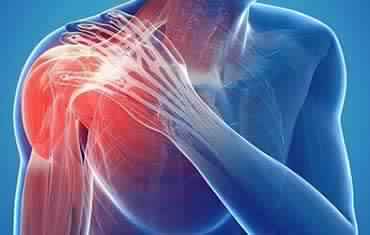SHOULDER PAIN

Shoulder pain is a common complaint that can arise from various causes, ranging from minor muscle strains to more serious conditions affecting the joints, tendons, or nerves. Understanding the potential triggers and symptoms of shoulder pain is crucial for effective management and relief.
One of the most common causes of shoulder pain is overuse or injury to the muscles and tendons surrounding the shoulder joint. Activities that involve repetitive overhead motions, such as painting, swimming, or playing tennis, can lead to strains or inflammation known as tendonitis. Similarly, sudden impacts or falls onto the shoulder can result in sprains, strains, or even fractures, causing acute pain and limited mobility.
Chronic conditions like arthritis can also contribute to shoulder pain, particularly osteoarthritis or rheumatoid arthritis. These conditions cause gradual degeneration of the cartilage in the shoulder joint, leading to pain, stiffness, and reduced range of motion over time. Additionally, conditions such as frozen shoulder (adhesive capsulitis) can cause pain and stiffness in the shoulder joint, limiting movement and function.
Shoulder pain may also be a symptom of underlying medical issues such as rotator cuff tears, bursitis, or nerve impingement. In some cases, pain originating from the neck or upper back can radiate into the shoulder area, causing referred pain. Seeking medical evaluation is essential for diagnosing the underlying cause of shoulder pain and determining the most appropriate treatment plan, which may include rest, physical therapy, medication, or in severe cases, surgical intervention. By addressing the root cause of shoulder pain, individuals can alleviate discomfort and regain optimal shoulder function.
